Single Channel
High-performance single-channel potentiostats with EIS for precision electrochemical analysis in corrosion, batteries, and catalysis. Ideal for research labs.
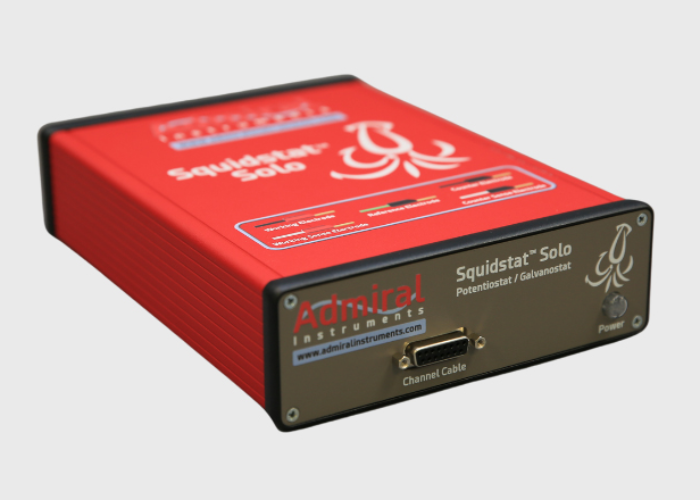
Squidstat Solo Single-Channel Potentiostat/Galvanostat
- Voltage Scan Range: ±10 V
- Max Current: ±100 mA
- Best Current Accuracy : 1 nA
- Channels Per Unit: 1
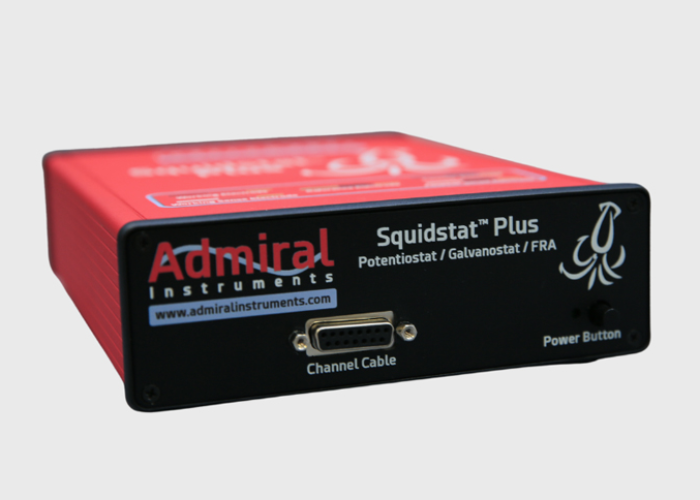
Admiral Instruments Squidstat Plus Potentiostat/Galvanostat (±1 A) with EIS
- Voltage Scan Range: ±10 V
- Max Current: ±1 A
- EIS Frequency Range: 10 µHz - 2 MHz
- Best Current Accuracy: 1 nA

Admiral Instruments Squidstat Penta Potentiostat/Galvanostat with FRA (EIS to 2 MHz)
- Voltage Scan Range: ±10 V
- Max Current: ±5 A
- EIS Frequency Range: 10 µHz - 2 MHz
- Best Current Accuracy: 1 nA

Squidstat Decka Potentiostat/Galvanostat with FRA (±10 A, 2 MHz EIS)
- Voltage Scan Range: ±10 V
- Max Current: ±10 A
- EIS Frequency Range: 10 µHz - 2 MHz
- Best Current Accuracy: 1 nA
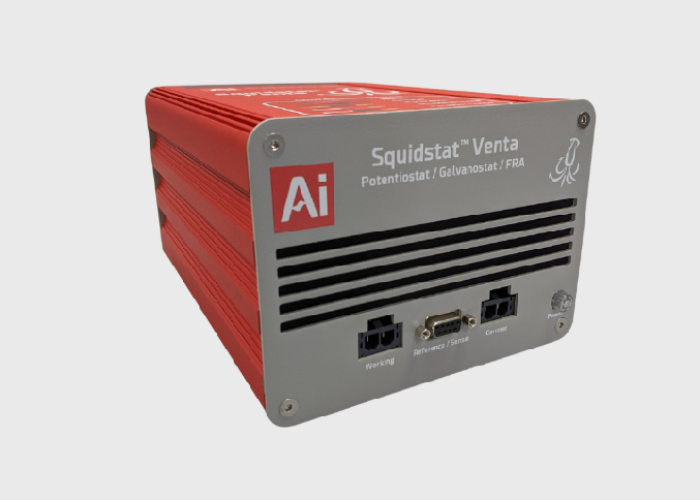
Squidstat Venta High-Current Potentiostat/Galvanostat (±20 A) with 2 MHz EIS
- Voltage Scan Range: ±6 V
- Max Current: ±20 A
- EIS Frequency Range: 10 µHz - 2 MHz
- Best Current Accuracy: 1 nA
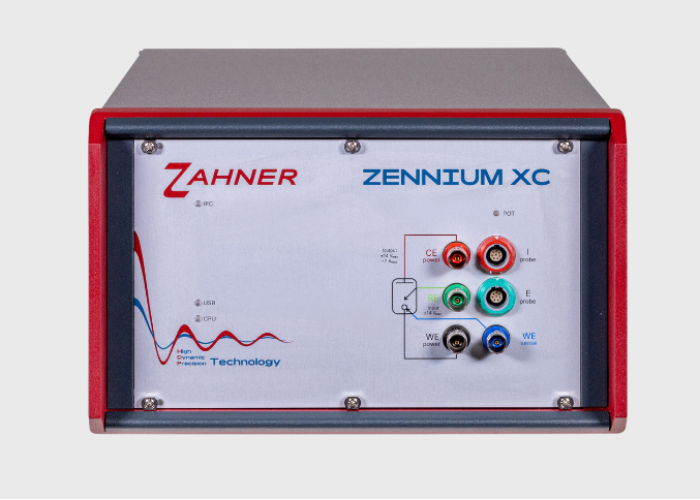
Zennium XC
- Voltage Scan Range: ±5 V and ±14 V
- Max Current: ±2 A
- EIS Frequency Range: 10 µHz to 5 MHz
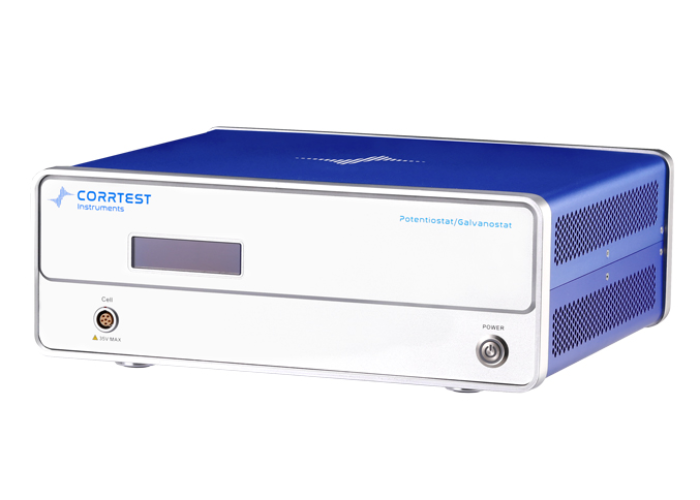
CS300M Potentiostat/Galvanostat (Without EIS) – Single-Channel Electrochemical Workstation
- Potential control range: ±10 V (customizable to ±12 V)
- Current control range: ±2 A (10 programmable ranges)
- EIS frequency range: EIS not supported for this model
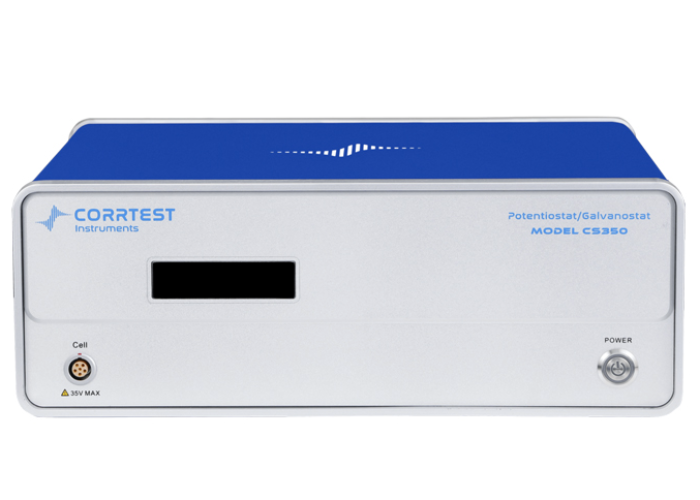
CS310M Single-Channel Potentiostat/Galvanostat with EIS (Electrochemical Workstation)
- Potential range: ±10 V (customizable to ±12 V)
- Current range: ±2 A (10 programmable ranges)
- EIS frequency range: 10 µHz – 1 MHz
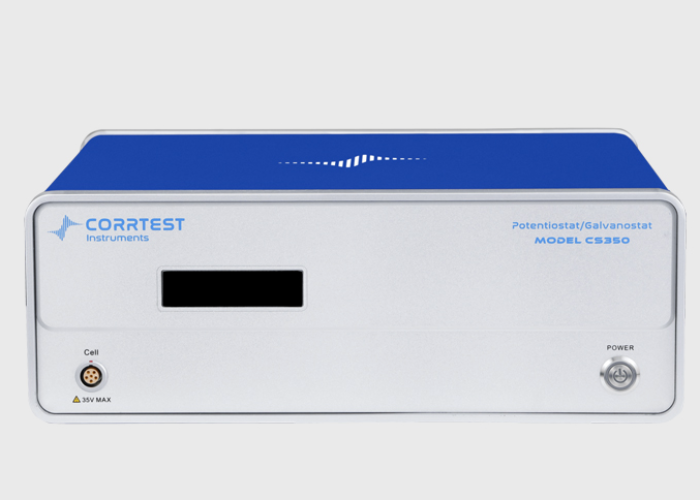
CS350M
- Potential Range: ±10 V (customizable to ±12 V)
- Current Range: ±2 A (10 programmable ranges)
- EIS Frequency Range: 10 µHz to 1 MHz
Single-Channel Potentiostats & Galvanostats — Zahner, CorrTest & SquidStat
Precision Electrochemical Instruments for Research and QA/QC
ScienceGears offers a premium selection of single-channel potentiostats and galvanostats from three leading global brands: Zahner, CorrTest, and SquidStat. Each instrument supports core electrochemical techniques and is designed for precise voltage/current control, real-time analysis, and experimental flexibility across applications like battery research, corrosion studies, electrocatalysis, and sensor development.
Our range includes both entry-level and research-grade systems that can be easily integrated into academic, industrial, and quality control labs.
Key Features
- Single-channel architecture for focused, high-resolution measurements
- Wide voltage and current ranges to suit diverse electrochemical systems
- Optional EIS (Electrochemical Impedance Spectroscopy) modules available
- Software compatibility for flexible control and data acquisition
- Rugged and compact designs for benchtop or field use
Featured Brands & Models
Zahner Elektrik
- German-engineered for high-end research
- Renowned for high-frequency EIS, low-noise performance, and modular expandability
- Ideal for photoelectrochemistry, fuel cells, and catalysis studies
Zahner Single channels
CorrTest Instruments
- Affordable, robust systems for corrosion analysis, coatings, and general electrochemistry
- Suitable for universities and R&D labs
- Advanced models include software-controlled switching and EIS
CorrTest Single channels
SquidStat by Admiral Instruments
- Compact, mobile, and cost-effective
- Bluetooth-enabled models compatible with laptops, tablets, and phones
- Great for field testing, education, and startup labs
SquidStat Single channels
Typical Applications
- Electrocatalysis and reaction mechanism studies
- Battery materials and redox flow cell research
- Corrosion testing in metal/alloy systems
- Electroplating and electrodeposition
- Biosensing and medical diagnostics
- Coating integrity and QA/QC
Frequently Asked Questions (FAQs)
1. What is a single-channel potentiostat?
A single-channel potentiostat controls and monitors voltage and current for one electrochemical cell at a time. It's ideal for dedicated experiments where high precision and stability are required.
2. What is the difference between a potentiostat and a galvanostat?
A potentiostat maintains a constant voltage and measures current, while a galvanostat maintains a constant current and measures voltage. Most instruments support both modes.
3. Which electrochemical techniques are supported?
Standard techniques include cyclic voltammetry (CV), chronoamperometry (CA), chronopotentiometry (CP), linear sweep voltammetry (LSV), and many models offer Electrochemical Impedance Spectroscopy (EIS).
4. Can I use these instruments for corrosion testing?
Yes. CorrTest potentiostats are particularly suited for corrosion studies, including Tafel analysis, polarization resistance, and coatings evaluation.
5. What’s the advantage of Zahner systems?
Zahner potentiostats offer ultra-low noise, wide frequency range EIS, and modular add-ons — ideal for advanced electrochemical and photoelectrochemical research.
6. Are SquidStat instruments suitable for education?
Yes. SquidStat potentiostats are portable, budget-friendly, and Bluetooth-enabled — perfect for teaching labs, field tests, or entry-level applications.
7. Need Help Choosing the Right Potentiostat?
Explore our full range of Zahner, CorrTest, and SquidStat single-channel systems — or contact ScienceGears for tailored recommendations.
